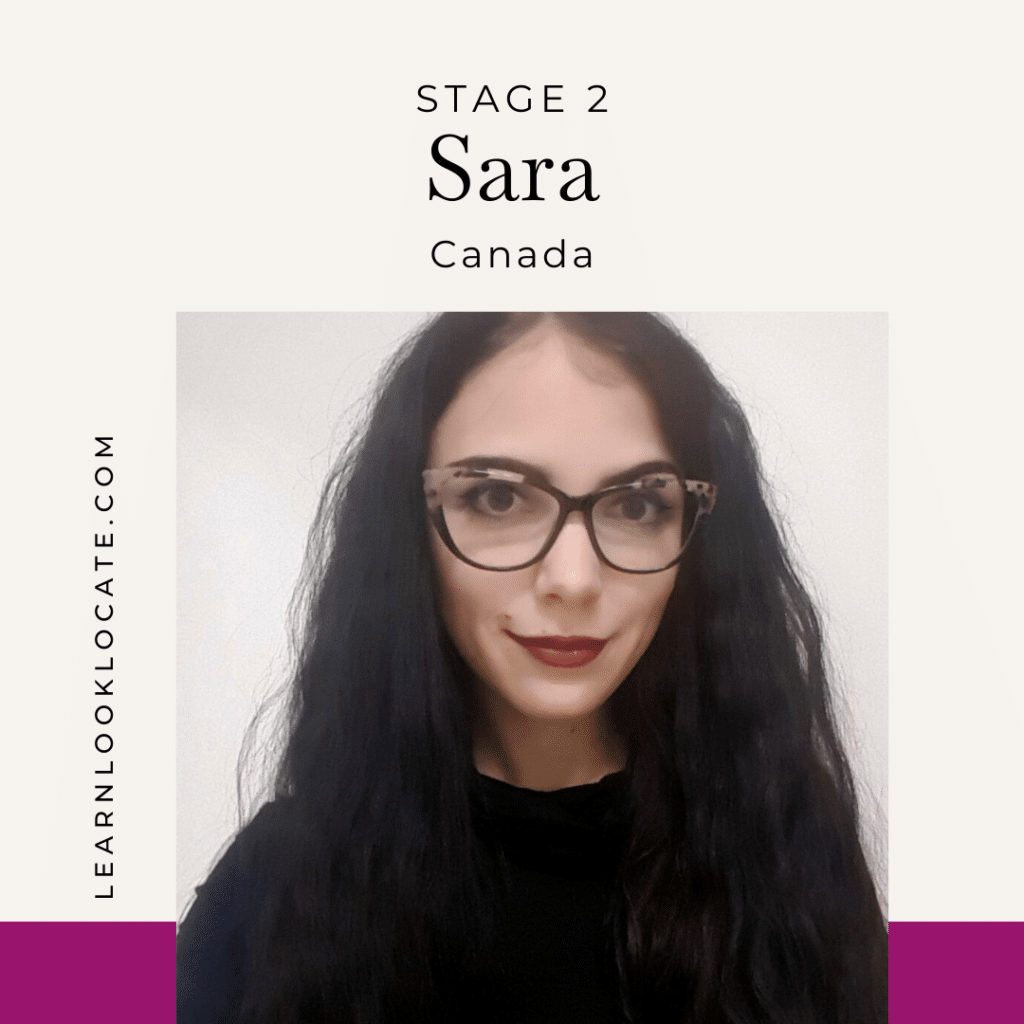
Sara
Stage 2, Canada
Cancer is a tidal wave that completely sweeps you off your feet, knocking you senseless, leaving you confused.
It threatens to crush and consume, comes at you from every angle, and your feet cannot find the bottom. I was 32 when I heard the words on the phone, and they still echo in my head some days; the nauseous feeling sometimes replays. It felt like I stepped into a different reality, someone else’s life. It could not be mine-I was young, healthy, have a supportive husband, a young family, a rewarding career; how could something like this happen to me?
There were many “at-leasts” that were thrown at me at the time of diagnoses; at least it is Stage 1 (later determined to be 2), at least you have children already, at least you are in good shape to fight this, at least you have health insurance. This was all very true, and I am extremely grateful for the silver-linings. However, this did not take away the realities of what was happening to me. I have days where I feel extremely angry, or fatigued, or sad, and at the beginning, I felt like I needed to tuck these emotions away. I wanted to protect friends and family members who were suffering along with me, and thought I had to maintain positivity 100% of the time. I kept being told I was a “fighter”-what did that mean?
Gratitude is indeed extremely important, as well as viewing difficult things in a positive way. Instead of seeing the chemotherapy drugs as toxic poison in my veins, I would tell myself that they were life-saving treatments that were going to keep me here. Instead of viewing my hair-loss as painful, I would see it as evidence of the medication working. This mind-set was helpful but again, it was not always possible to think like this, and that is okay.
The experience has been a teeter-totter from the moment I did a self-examination and felt several lumps that seemed to appear out of nowhere. I had felt great and did not have any risk factors. I somehow had internal intuition that they were not benign and was grateful that my doctor did not dismiss my concerns due to my age. I will now be a life-time advocate of doing self-examinations, and all recommended routine exams, as they saved my life and will save many others. I also would like to see better ongoing care for cancer survivors and thrivers, as we are left on our own for the most part once active treatment is done.
Young women affected have different issues stemming from diagnoses than older patients; I believe there is work to be done so we are not left in the cold in the afterwards. Patients should be informed along the way; from fertility preservation (if applicable), hair-loss prevention, breast reconstruction or not, ports or PICC lines, physiotherapy/massage after surgery and/or radiation, mental health resources, etc. Also, the rate of reoccurrence is alarming, and I am hopeful that through funding and research, we will see new and innovative ways to prevent cancer from returning and find a cure.
Cancer leaves its physical mark; despite hair regrowth, I have port, drain tube and biopsy scars and reconstructed breasts that are constant reminders. Sometimes I feel so far away from the person I was before. I will need to reconnect with my old self and let the waterfall of emotions ebb and flow over me with no judgement. The emotional toll is daunting to me, and I feel like everyone deserves to be supported after climbing a mountain whose snow constantly threatens to bury us, even when treatment is done (and it is never done for some). I owe so much to my friends and family during this journey but cannot neglect the breast cancer community. Connecting with those in your shoes instead of researching disturbing statistics on Google in the middle of the night has been immensely helpful. I don’t feel particularly brave but do feel strong.
